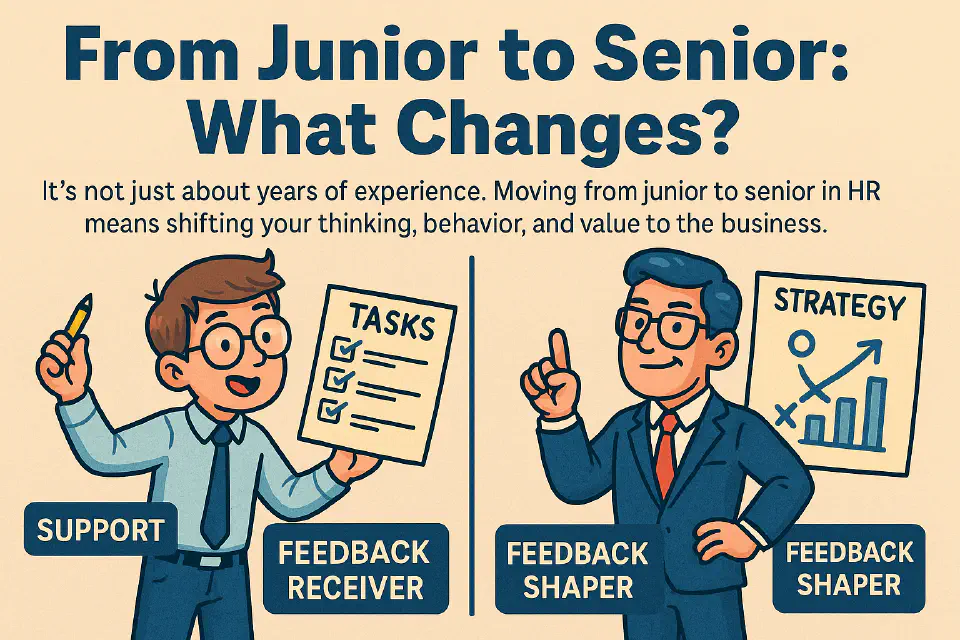
From Junior to Senior: What Changes?
It’s not just about years of experience. Moving from junior to senior in HR means shifting your thinking, behavior, and value to the business.
One of the most common questions in HR career coaching is:
“What does it take to be considered senior?”
Spoiler: it’s not just years on your résumé.
What Does “Senior” Actually Mean?
It’s about how you approach problems, people, and business realities — and how much impact you generate.
Five Key Shifts from Junior to Senior
1. From Tasks to Strategy
- Junior: Executes tasks assigned by others
- Senior: Defines goals, sets direction, aligns work with outcomes
Senior HR professionals don’t wait for permission — they lead.
2. From Knowledge to Insight
- Junior: Applies rules, policies, and practices
- Senior: Interprets context, anticipates consequences, adapts wisely
Great seniors know when to bend rules — and when to reinforce them.
3. From Support to Influence
- Junior: Provides answers and follows process
- Senior: Coaches leaders, frames trade-offs, drives culture
Influence isn’t about ego. It’s about framing decisions that others trust.
4. From Tasks to Ownership
- Junior: Manages parts of processes
- Senior: Owns entire programs, results, and reputation
Ownership is what separates operational roles from true leadership.
5. From Feedback Receiver to Feedback Shaper
- Junior: Receives guidance and correction
- Senior: Models feedback culture, mentors others, gives tough truths
What Doesn’t Automatically Make You Senior
- Years in the same role
- A long list of completed trainings
- Knowing all the laws or tools
- Having “manager” in your title
Seniority is recognized when others seek your perspective, trust your judgment, and rely on your decisions.
Real Signs of HR Seniority
| Area | Junior Focus | Senior Focus |
|---|---|---|
| Decisions | Rules, precedent | Context, impact, nuance |
| Scope | Tasks and templates | Programs, systems, policies |
| People | Individual support | Teamwide culture, leadership coaching |
| Metrics | Compliance, volume | Insight, alignment, efficiency |
| Language | “HR said” | “We recommend” |
How to Move Up With Intention
- Ask for feedback from people outside HR
- Join business planning meetings
- Offer solutions, not just observations
- Volunteer for messy or unclear projects
- Mentor juniors and invite reverse mentoring
Final Thought
Seniority isn’t a destination — it’s a way of showing up.
Own your space, think beyond your desk, and act like a leader long before your title says so.